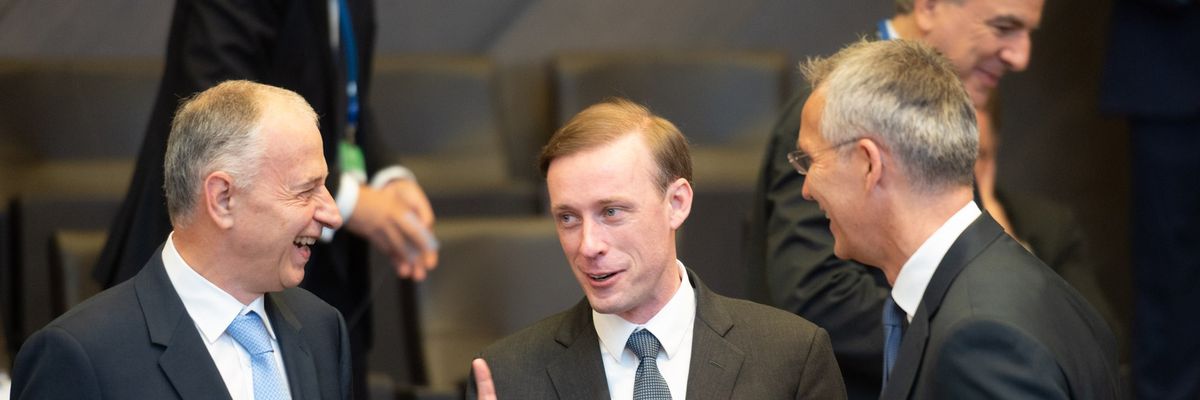U.S. National Security Advisor Jake Sullivan’s speech to the Lowy Institute in Australia featured many points he has made before. Prominent among these was a focus on allies and partners, a hallmark of the Biden Administration. Sullivan took pains to assure his audience that he is committed to America’s friends.
Sullivan artfully dodged answering a question on French ire over the announcement of AUKUS, the new alliance between the United States, the United Kingdom, and France, by saying he is looking to the future. France was deeply upset that its previous submarine contract with Australia was summarily abandoned over a new deal to build long-range nuclear submarines. It won’t be so easy for Washington to bring the relationship with Paris back to the good old days.
But it was the question of AUKUS that deserved the deepest probing from the event moderator. Sullivan primarily portrayed AUKUS as a technology-sharing initiative that demonstrated how the United States enables the scientific progress of its closest friends. Sure AUKUS is about technology, as it includes (other than sharing methods for fabricating highly sensitive nuclear-propelled submarines) collaboration in areas such as artificial intelligence and quantum computing.
More to the point however, AUKUS isn't some high-minded scientific endeavor like curing cancer. It is an explicitly military alliance about arming Australia with offensive, blue-water capability that goes way beyond national and coastal defense (which the French diesel-electric submarines were primarily designed to do). AUKUS-built submarines will be much more expensive than the diesel-electric ones they replaced. Though their deployment may be up to two decades away, the submarines will have chief utility as an additional sword arm for projecting power in the open oceans.
AUKUS may be less about ensuring allies can defend themselves and more about their conversion to frontline states, perhaps in a future coalition of the willing aimed at China. No wonder key Southeast Asian states, who do not want to be run over in a self-interested contest of the great powers, are deeply concerned. They may not belong to the select Anglosphere club, but are America’s friends no less.
If Sullivan had a rationale on AUKUS as a region-wide offensively-oriented pact, and the potential transformation of Australia’s role in U.S.-led plans on China, this was an opportunity to get at it. But in failing to probe the U.S. National Security Advisor further on the nature and intent of this pact, the event moderator missed his chance. The American and the Australian people, as also the people of Southeast Asia, need to know more about the geopolitical logic behind AUKUS, and the risks this entails to their lives and their interests. Mr. Sullivan has yet some explaining to do.
















